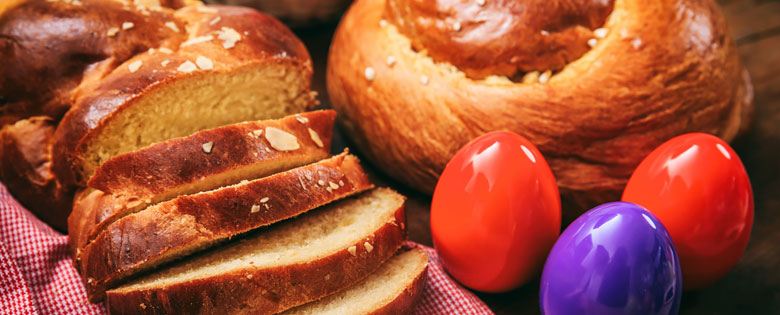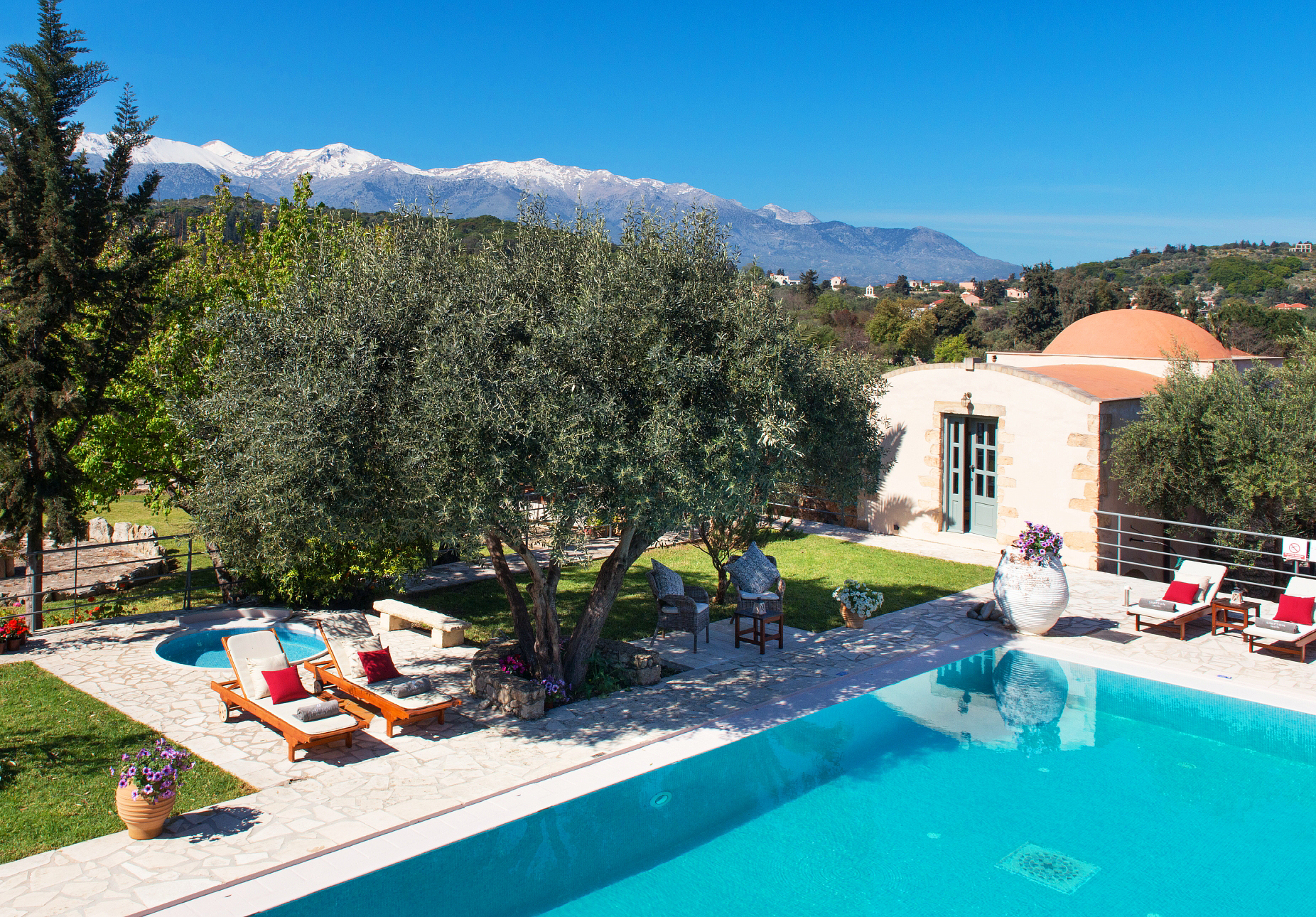Greek Easter in Crete
- By Simpson Travel
- 24 Jan 2022
- What to do
Greek Easter – also referred to as Pascha – is the most important occasion in the Greek calendar, approached with the same kind of mounting excitement as Christmas in the UK. It's a time of religious observance and lively celebration, marked by centuries-old rites and traditions.
Easter in Greece is very much a family affair: children tackle the highly competitive building of bonfires, whilst mothers and grandmothers will be busy in the kitchen for days, baking pastries, making cheese and dying eggs the distinctive bright red to symbolise the blood of Christ. Extended families travel miles to spend the holiday time together.

Greek Easter week: the order of ceremony
Vamos village in Western Crete is well-known for actively preserving the traditions and heritage of Pascha, making it an ideal place to experience this colourful and moving spectacle. This is how the week progresses...
Megali Ebdomada (Holy Week) begins on Palm Sunday when crosses made from palm leaves are given out in church. They take pride of place in people's houses for the whole of the next year. This is the first day of a week of services and also, for those who choose, adherence to a strict diet, especially on Good Friday and Easter Saturday.
Megali Deftera (Holy Monday) The icon of Jesus Christ takes centre stage as people gather in the church to kiss it.
Megali Triti (Holy Tuesday) The blessing of the oil takes place and the women make Easter biscuits (Koulourakia) with oil and eggs.
Megali Tetarti (Holy Wednesday) Worshippers are blessed with the oil and for the rest of the week, housework ceases.
Megali Pempti (Holy Thursday.) Communion services are held throughout the day and eggs, the symbol of life and re-birth, are dyed red, symbolising the blood of Christ.
In the evening, women and girls go to the church to decorate the epitaphios or bier with garlands of flowers, often staying until the early hours of the morning. The epitaphios symbolises the tomb and their aim to make it ready to receive the Christ figure, which will be down from the cross and wrapped in linen before being placed inside. He'll remain in the church until Friday evening.
Megali Paraskevi (Good Friday) is a day of mourning and the death knell rings out throughout the day. Extreme fasting is widely observed and the only food permitted is a soup made from lentils, tahini (sesame paste) and lettuce with vinegar – Christ was given vinegar on the cross. It is also a sin to hammer nails or sew on Good Friday.
In the evening, another church service is followed by the procession of the epitaphios, representing Christ’s funeral, during which the men (often members of the army or navy) will carry the epitaphios out into the street. The priest leads the procession, followed by cantors and women bearing myrrh and people of the parish, who sing hymns during the procession. The epitaphios leaves the church of Aghios Nikolas in Vamos around 9pm.
Megali Savvato (Easter Saturday). Anastasi is without doubt the most important day of the week. The holy flame arrives from Jerusalem to Athens by plane and is sent all over Greece.
Everybody goes to church and, at midnight, the bells ring out and the priest announces Christos Anesti (Christ is risen.) Everyone holds a candle (labatha) ready to receive the holy flame. For children, the candle is decorated and a gift from their godparents.
At midnight, all the lights in the church are extinguished, the priest comes out from behind the altar, carrying the holy flame, and lights the candles of people at the front of the congregation who then pass the light to others, symbolising the resurrection. Family and friends hug and kiss and declare Christos Anestiwith the response Alithos Anesti (He has truly risen).
Church bells ring out, ships in ports all over Greece sound their horns, fireworks go off and an effigy of Judas is burnt on a huge bonfire. It is the custom to carry the lit candle home, taking care not to extinguish the flame. Once home, a cross is made over the front door with the soot from the flame in order to bless the house and its inhabitants. A special dinner of mayaritsa, a soup made with lamb, egg, lemon sauce and dill, is eaten to break the fast.
Easter Sunday (Pascha). This is party day! Christ has risen and, all over Greece, the smell of cooked meat fills the air as lambs are spit roasted in every field, back yard and garden. Other traditional fare includes kalitsounia (little cheese pies), Easter sweet biscuits (koulourakia), sweet bread (tsoureki) and, of course, the red eggs.
You might also see tsougrisma competitions taking place. Two people knock the eggs together; one says Christos Anesti (Christ is risen) and the other replies Alithos Anesti (He has truly risen). The person whose egg doesn’t break is the winner.
Keen to join the celebrations? Experience all the magic of Greek Easter for yourself at Arosmari Village Hotel.











